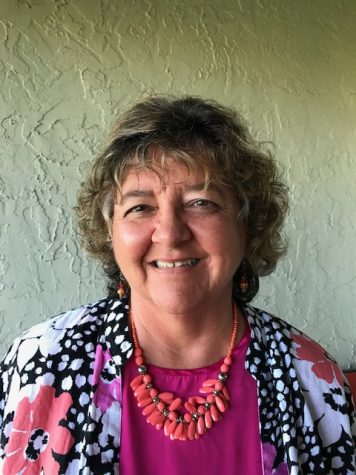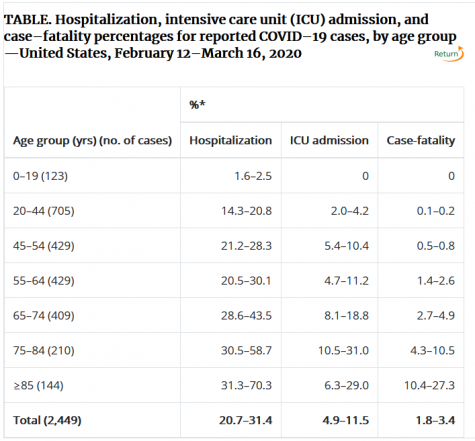Not everyone is taking social distancing seriously. Warnings about the dangers of COVID-19 highlighted the particular deadliness the disease has over the elderly, infants, and immunocompromised. Unfortunately, this pandemic does not discriminate, and the disease has proven to be deadly even for young adults.
UNF’s Interim Director of Student Health Services Dr. Pat Richards said this disease needs to be taken seriously by everyone to protect ourselves and our community.

“Since this is a novel (new strain) of virus never seen in humans before, everyone is susceptible, and no one is immune,” Richards said. “Initially, U.S. cases were related to travel, especially international travel. Now there is community spread, and the source remains unknown. As the outbreak expands, the risk will increase.”
Dr. Richards said current high-risk groups include people in locations where community spread has been reported, health care workers treating patients with COVID-19, and travelers who have recently arrived from affected locations. Dr. Richards also said there are people who risk severe illness from the disease, particularly the elderly – over the age of 65 – and those of any age with underlying medical conditions.

“These conditions include moderate to severe asthma, lung disease of any type – including those people who smoke, vape, use a bong or hookah or inhale anything into their lungs – cancer, diabetes, heart or kidney or liver disease,” Richards said. “Or have any immunocompromising conditions (lupus, HIV/AIDS, autoimmune diseases, rheumatoid arthritis, Crohn’s disease, etc.), pregnancy, obesity (BMI >40). COVID does not discriminate solely on the basis of age.”
Social distancing and self-isolation practices do well to prevent the spread of the virus. Regrettably, some young people have not heeded the warnings laid out in response to the pandemic, highlighted by a video of spring breakers downplaying the disease which has killed over 25,000 people thus far.
“Curfews are being discussed. It is important that all citizens take an active role in preventing this virus from multiplying. Our mayor has asked for all of us to ‘do the right thing’,” Richards said. “Young people who have been seen on TV and social media continuing to gather and to be on beaches and resorts, paint a picture of being ‘irresponsible’, particularly by those people who have loved ones who are ill, dying or dead because of the virus. This is not the image that UNF or any university wants to present to the public.”
There are now more than 80 confirmed cases of COVID-19 in Duval county, and a UNF employee was diagnosed to have contracted the disease on March 26.
“When people cough or sneeze, the moisture can spray over 3 feet in any direction. The virus is spread by respiratory means, just like mononucleosis, influenza and the common cold,” Richards said. “Social distancing of 6 feet allows for the control of this transmission. Everyone should practice this during the pandemic. We never know the status of the person next to us. We see that many people without symptoms have been found to be positive for the virus. Most recently, Prince Charles tested positive. We need to limit our exposure if we are to close the gap and ‘flatten the curve’ of this transmission.”
The wildfire spread of COVID-19 has proved to be a global issue, of which the solution begins with individuals trusting medical professionals and practicing social distancing and self-isolation. Beyond that, people must also continue to practice thorough hygiene and remain vigilant about how their lifestyle can affect them and their communities. Dr. Richards insists this kind of self-care is vital to help flatten the coronavirus curve.
“I would tell a student who is not worried about contracting the disease, that no one is immune. Wash your hands often, don’t touch your face -where you introduce germs from your hands to your mucus membranes -, clean your environment, self-isolate, practice social distancing, protect your family and neighbors,” Richards said. “This is a great time to catch up on things that you have not had leisure time to do. Study hard. It is very different to have course responsibilities and not be held to going to classes for lecture or face to face contact. Your teachers are working hard to make these remaining weeks productive for you, so take advantage of the opportunities. Remain positive and alert. Let someone know if a fellow student seems depressed or not handling things well. We never know who is struggling emotionally, unless we ask and care.”
Students who want to contact Student Health Services can call them at (904) 620-2900. Additionally, the Counseling Center is still providing remote care for students 24/7 and you can reach them at (904) 620-2602, just select option 2.
__
For more information or news tips, or if you see an error in this story or have any compliments or concerns, contact editor@unfspinnaker.com.











